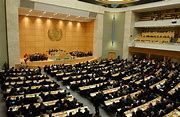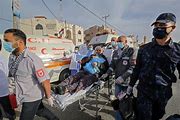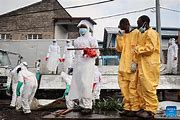In a groundbreaking move to fortify global health initiatives, nations worldwide have united to provide the World Health Organization (WHO) with its most substantial financial boost in decades. This landmark decision at the Seventy-eighth World Health Assembly aims to enhance the financial stability and effectiveness of WHO, paving the way for significant reforms.
“This decision addresses head-on the decades-long challenge WHO has faced on predictable, flexible and sustainable funding,”
emphasized WHO Director-General Dr. Tedros Adhanom Ghebreyesus. The approval includes a notable 20% increase in assessed contributions, marking a crucial step towards achieving long-term financial sustainability for WHO. Member States acknowledged that such enhanced funding is essential to empowering WHO in fulfilling its mandate as a leading global health authority.
The Sustainable Financing Working Group, chaired by Björn Kümmel of Germany, played a pivotal role in formulating recommendations that were fully embraced through these reforms. Besides amplifying assessed contributions, these recommendations explore innovative funding mechanisms like a replenishment model while establishing a task group to bolster transparency and accountability within WHO’s governance structure.
“Beyond WHO’s immediate scope, this decision signifies our vision for an integrated global health system with a robustly reinforced WHO at its core,”
highlighted Kümmel. Such strategic realignment is deemed critical by experts who have long critiqued WHO’s heavy reliance on earmarked voluntary donations that can hinder long-term planning and equitable response strategies to global health crises.
With increasing pressure on achieving sustainable financing models, today’s decision holds significant economic implications as well. Financial experts stress that every dollar invested in WHO yields substantial returns—upwards of $35—underscoring the importance of adequate funding for addressing diverse health challenges globally.
The recalibrated budget approved aligns closely with WHO’s Fourteenth General Programme of Work (2025–2028), underscoring Member States’ commitment to reinforcing core funding streams over time despite prevailing global financial constraints. This restructured approach not only signals growing support for an autonomous and resilient WHO but also positions the organization strongly to navigate future health threats adeptly.
The evolving landscape of global health demands a more agile and well-resourced entity like WHO capable of steering collective responses towards ensuring universal health security—a sentiment echoed by officials amidst increasingly complex health emergencies ranging from pandemics to climate-related crises.
The endorsement of this enhanced funding framework at WHA78 represents a pivotal moment in reshaping WHO’s operational dynamics since its transformation initiatives commenced in 2017. Concurrently, recent endeavors like the establishment of the WHO Foundation and innovative fundraising strategies further underscore efforts aimed at diversifying revenue sources and expanding partnerships crucial for sustaining impactful global health interventions.









Leave feedback about this